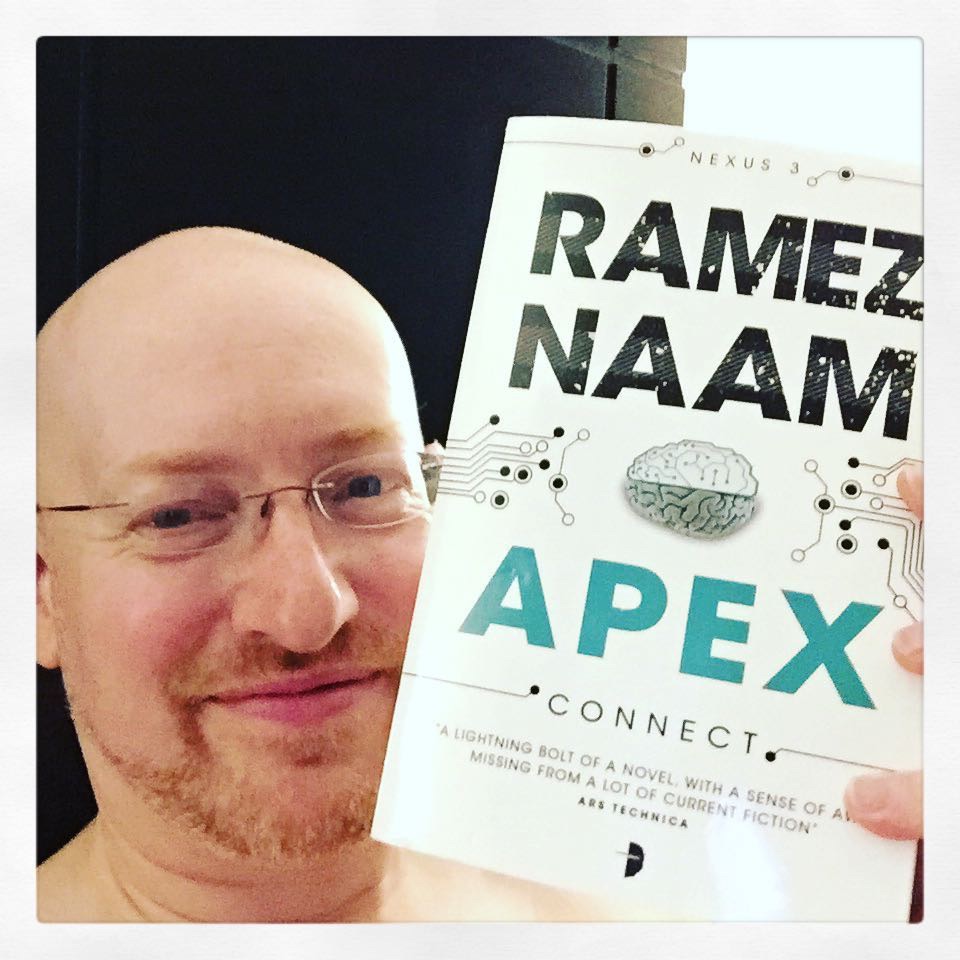Book fifteen of 2016: Lucky Starr and the Big Sun of Mercury, by Isaac Asimov. ⭐️⭐️⭐️ (97/366)
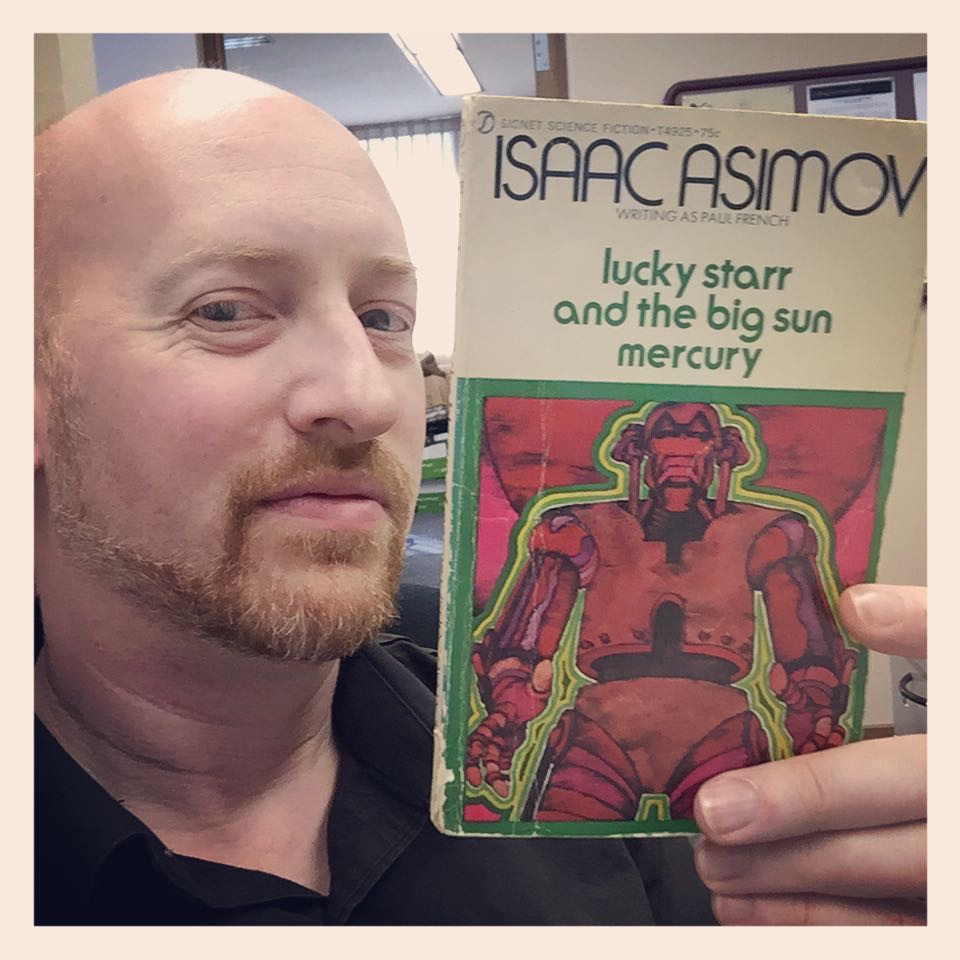
Enthusiastically Ambiverted Hopepunk
I read…a lot. Here’s where I ramble about books and printed media.
Book fifteen of 2016: Lucky Starr and the Big Sun of Mercury, by Isaac Asimov. ⭐️⭐️⭐️ (97/366)

Book fourteen of 2016: The Liar, by Stephen Fry. ⭐️⭐️⭐️ (93/366)
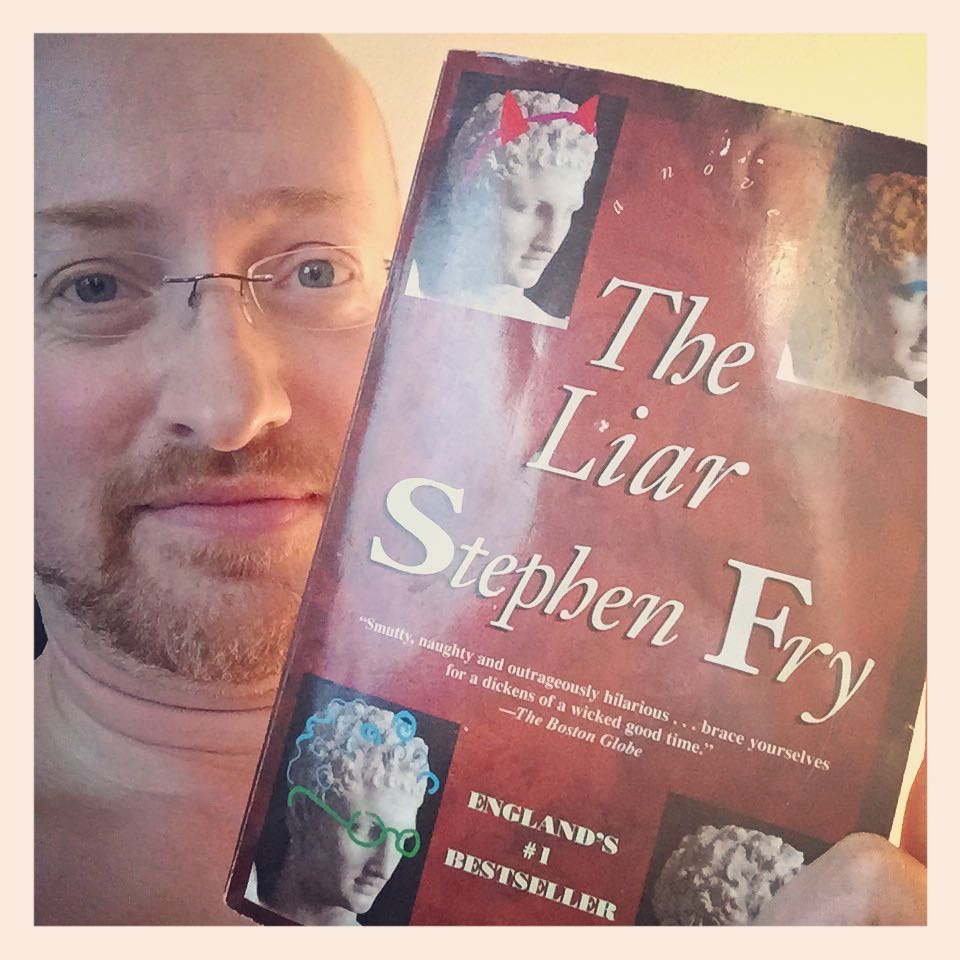
Book thirteen of 2016: Tron, by Brian Daley. ⭐️⭐️⭐️

Book twelve of 2016: Marvel Comics’ Battlestar Galactica adaptation. ⭐️⭐️⭐️ (76/366)
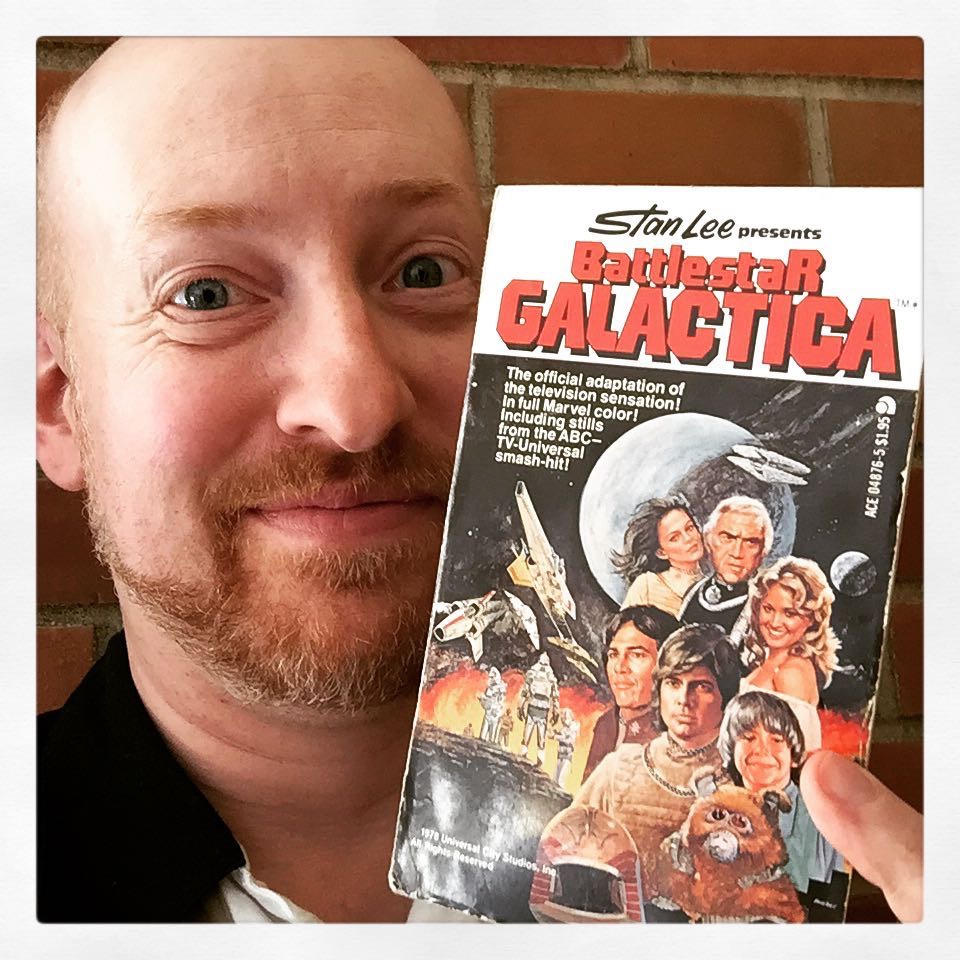
My ranking of this year’s Philip K. Dick Award nominated books, from least favorite to my top pick for the award (which, historically, has yet to match the actual award winner, so don’t put too much stock in my ranking):
(R)evoution, by P.J. Manney. Some interesting ideas on transhumanism and nanotechnology, but too many of the characterizations really bothered me. Actually ended up disliking this one. Only takes fifth rather than sixth because at least I wasn’t bored.
Archangel, by Marguerite Reed. Not a bad book, but for some reason, failed to engage me.
Windswept, by Adam Rakunas. An entertaining adventure that made business-vs-union conflict more interesting than I would have guessed. Fun, but didn’t grab me the way I’d want a winner to do.
Apex, by Ramez Naam. The conclusion to a trilogy, with lots of near-future extrapolation of mind/computer interfaces and enhancement and transhumanism. The end notes discussing today’s technology and how close we may actually be to some of what’s described in the books were particularly fascinating. Almost took the top spot, but in what is a personal and somewhat silly consideration, I tend to favor “standalone” books that handle all their worldbuilding over books that are later entries in a series, which benefit from all the plot and worldbuilding already established in the prior books.
Edge of Dark, by Brenda Cooper. More transhumanism, only this time from a far-future perspective, when once human entities banished from human space due to fears of what they were becoming return to human space. Well-realized and interesting characters, really neat possibilities for future technologically-enhanced evolution, and very believable conflict. Definitely my top pick.
I was quite happy to see that the theme of “depressing trudging through postapocalyptic wastelands” trend of the past few years wasn’t represented at all in this year’s pick, with transhumanism being the theme of half of this year’s picks — much more along my particular interests.
Now, just over one week to wait until we learn who the winner is at this year’s award ceremony!
Book eleven of 2016: (R)Evolution, by PJ Manney. ⭐️⭐️ #PKDickAward nominee. (75/366)
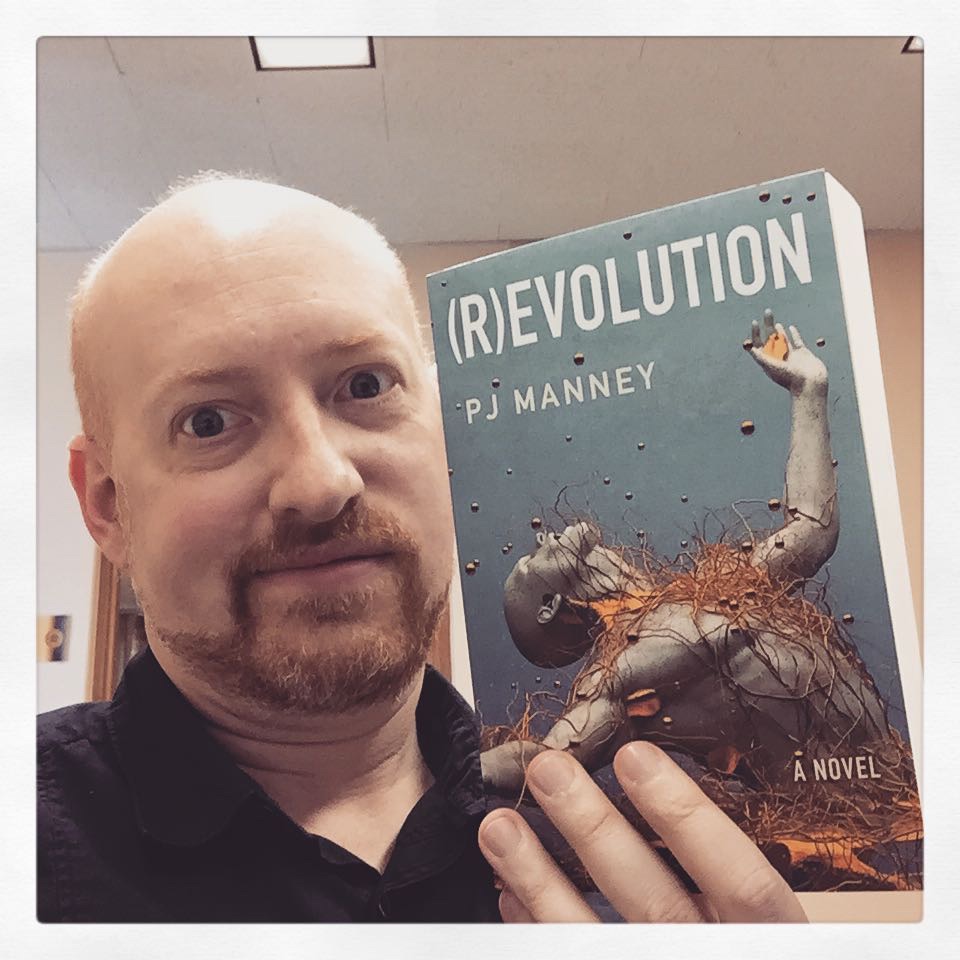
Hey @cajunsblues: I landed a great lineup of fluff at Goodwill today. Thought you’d appreciate it. ;)

Book ten of 2016: Edge of Dark, by Brenda Cooper. ⭐️⭐️⭐️⭐️ #PKDickAward nominee. (66/366)

Book nine of 2016: Archangel, by Marguerite Reed. ⭐️⭐️⭐️ #PKDickAward nominee. (65/366)
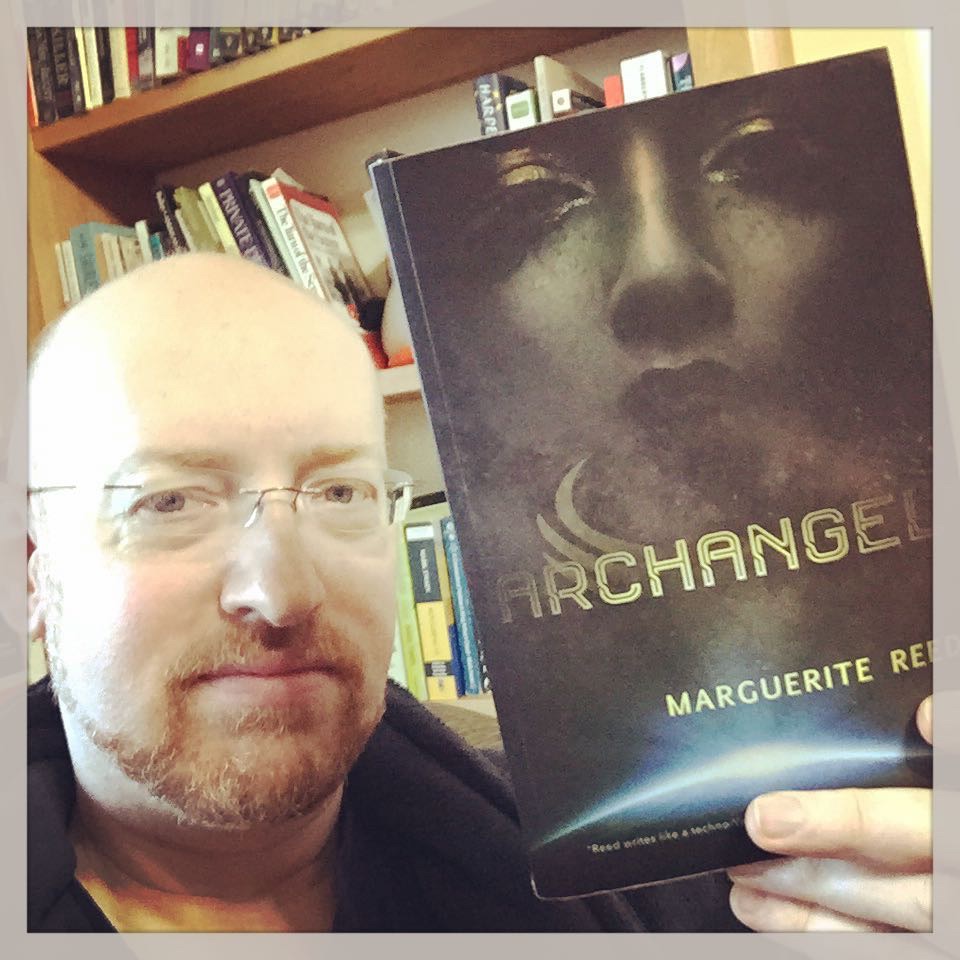
Book eight of 2016: Apex, by Ramez Naam. ⭐️⭐️⭐️⭐️ #PKDickAward nominee. #rameznaam
